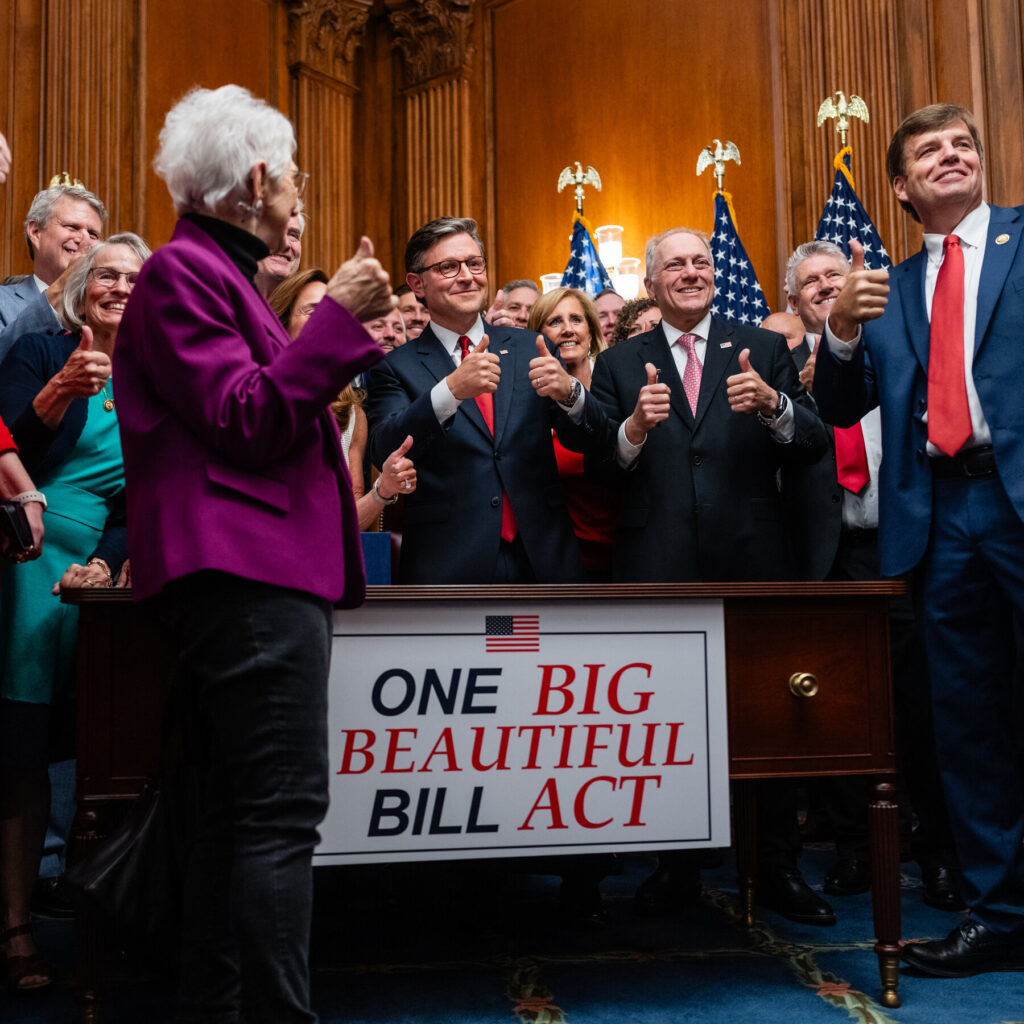Trump Administration Rolls Out New Tax Rules Delivering Hundreds of Billions in Relief to Corporations and the Ultra‑Wealthy

Washington – In a series of regulatory moves announced this week, the U.S. Treasury Department and the Internal Revenue Service (IRS) have unveiled a set of rule changes that are projected to shave off hundreds of billions of dollars in taxes for some of the nation’s largest corporations and the country’s richest individuals.
The new guidance, which updates guidance on depreciation, expensing, and the treatment of certain investment income, is being presented as a “streamlining” effort meant to simplify the tax code and encourage capital investment. Among the most significant provisions are:
* Expanded “100‑Percent Bonus Depreciation.” Companies can now immediately deduct the full cost of qualifying equipment and other capital assets, rather than spreading the expense over several years. The Treasury estimates that this change could accelerate tax savings of roughly $150 billion over the next decade for manufacturers, logistics firms, and other capital‑intensive sectors.
* Higher Limits on Section 179 Expensing. The cap on the amount businesses may expense in the year of purchase has been raised from $1 million to $2 million, with the phase‑out threshold also increased. This adjustment is expected to benefit small‑to‑mid‑size firms that invest in technology and machinery, but the bulk of the savings will accrue to large multinational subsidiaries that can aggregate purchases across the United States.
* Reduced Tax on “Qualified Business Income” for High‑Earners. A revision to the pass‑through deduction rules narrows the income‑level thresholds at which the 20 percent deduction is phased out, effectively preserving the full deduction for individuals earning over $500,000. The Treasury projects that this tweak will deliver an additional $80 billion in tax relief to the nation’s highest‑earning self‑employed professionals and owners of private equity funds.
* Lowered Rates on Certain Investment Gains. The IRS is also adjusting the definition of “qualified dividends” and “long‑term capital gains” for taxpayers whose adjusted gross income exceeds $1 million, allowing them to pay the 20 percent rate rather than the higher 23.8 percent rate that includes the net investment income tax.
The administration frames the changes as a means to boost economic growth, arguing that lower tax burdens will spur hiring, increase wages, and keep the United States competitive in a global market where rivals such as China and the European Union are offering generous incentives to attract corporate investment.
However, critics on Capitol Hill and in progressive think tanks warn that the rules disproportionately benefit the wealthiest segments of society while doing little to address income inequality or fund essential public services. Representative Alexandria Ocasio‑Cortez (D‑NY) called the rollout “a giveaway to billionaires at a time when the middle class is still feeling the pinch of inflation and high living costs.”
A recent analysis by the non‑partisan Congressional Budget Office estimates that the combined effect of the new regulations could reduce federal revenue by as much as $250 billion over the next ten years, widening the budget deficit unless offset by spending cuts or other revenue measures.
The Treasury has indicated that the rules will take effect for tax years beginning after December 31 2024, giving corporations and high‑income individuals a narrow window to restructure their financial plans before the changes become binding. Business groups such as the U.S. Chamber of Commerce have welcomed the move, calling it “a necessary step to unleash private‑sector investment and keep America’s economy on a growth trajectory.”
As the debate continues, the new tax guidance underscores the ongoing ideological clash over fiscal policy in Washington: whether to prioritize immediate revenue collection for public programs or to offer tax relief as a catalyst for private‑sector expansion. The final impact of the rules will likely become clearer as companies file their 2025 returns and the Treasury releases detailed revenue projections later this year.





Bu yeni vergi kuralları gerçekten adil mi? Zenginler daha da zenginleşirken, orta sınıfın ve düşük gelirli insanların durumu nasıl düzelecek?